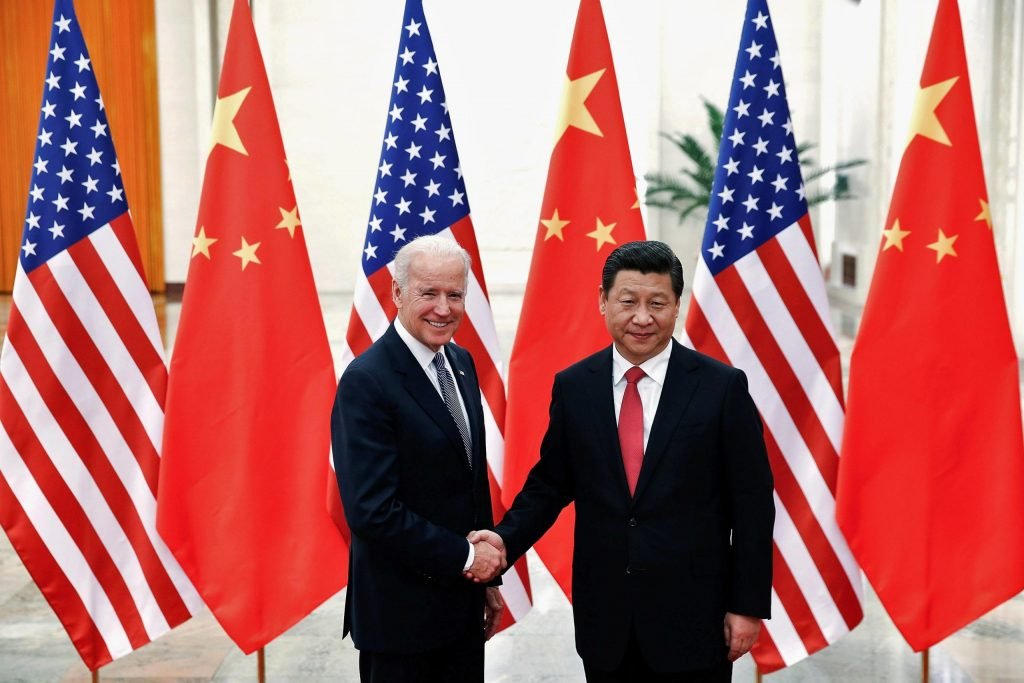China: the next superpower in the ‘Graveyard of Empires’

Economic rather than ideological nature is the defining feature of Chinese engagement
The recent political upheaval in Afghanistan has brought about a huge shift in the geopolitical realities of the region and the world at large. The US withdrawal has created a much-hyped ‘void’ in the country which the world’s latest superpower is more than happy to fill in albeit mostly only economically. Having learnt from the outcomes of its predecessors in ‘the graveyard of empires’, Beijing is carefully weighing the opportunities and risks of its engagement with the Taliban while facing an ever more antagonistic the US which considers it the biggest geopolitical rival of the century. If China is able to keep its relations strictly economical with the new power matrix in Kabul, it would become the exception to the graveyard notion of fates of superpowers in Afghanistan’s history.
Impact of American withdrawal
The hasty American pull out and the chaotic scenes at Kabul airport were widely criticised as another ‘Saigon moment’ for the US, a reference to the Vietnam War that ended with the fall of Saigon in 1975. The Chinese left no stone unturned to project the US as a declining power with serious questions over its reliability.
Over the past years, Beijing’s engagements with the Taliban have been mostly through its ‘Iron brother’ Pakistan, but in recent days, an open and enthusiastic pursuit of ‘friendly relations’ with ‘new political reality’ in Afghanistan has been on display. A Taliban government, if and when it comes into existence, would allow China to penetrate more deeply into Iran and Central Asia through Xi Jinping’s flagship ‘Belt and Road Initiative’. Moreover, Afghanistan sits on top of tons of minerals and natural resources such as lithium which is a crucial part of the booming electronic vehicles market, of which China is a leading producer. Not just that, various mining contracts, especially copper and plenty of other infrastructure projects would easily be in Beijing’s grasp given the Taliban’s desperation of immediate economic assistance that might be a precursor to an equally important diplomatic recognition.
However, not everything is so hunky and dory for Chinese interests in Afghanistan. Deep anxieties exist within China about a renewed uptick in Islamic extremism in its Xinjiang region notably the East Turkistan Islamic Movement (ETIM) which is ironical considering how eager it has been in legitimising an extremist Islamist group i.e., Taliban, just outside its boundaries. There are also fears of getting sucked in Afghanistan’s unique nature of politics although Chinese boots on the ground are highly unlikely unless something out of the box happens in the future.
Another point of anxiety for China’s top decision-makers is the wholesale focus of the United States and its allies in the Indo-Pacific, the next hotspot for another great game among world powers. The US’ financial and military resources earlier used in Afghanistan will now be diverted towards upping the ante against Beijing in the South China Sea and the extended region of Indo-Pacific, presumably in initiatives such as the Quad.

A Marriage of Convenience- and Need
The ideological disjunct between the Taliban and the Chinese is huge, to say the least, but despite that, the latest high-level interactions between the two, clearly portray a sense of urgency on part of Taliban and a clear understanding of its interests from the Chinese side. Unlike New Delhi, Beijing does not have many places for morality in its foreign policy which allows it to take more pragmatic approaches as witnessed in its heavy-handed repression of Uyghurs back at home in contrast to its “evergreen friendship” with Pakistan and its ‘budding’ relationship with the Taliban.
It is very much obvious, however, that the Chinese have the upper hand in this new relationship, leveraging the Taliban’s desperation of economic assistance for its shattered economy to gain assurances that Afghan territory would not be allowed to be used for any anti-China activities. From the Taliban’s side, apart from the monetary benefits, a diplomatic recognition from Beijing would be the much-needed cherry on the cake giving a boost to its legitimacy in the international community as an actual government.
Why China an exception?
The basic problem with previous ‘empires’ (a metaphorically used term) has been the attempt to impose ‘their ideologies’ on Afghans who clearly, as history reminds, do not take kindly to foreign ideas of a social and political way of life. In case of the Soviet Union, it was ‘communism’ as part of cold war geopolitical rivalry with the US and afterwards, it was ‘democracy’ often masquerading in public as America’s outcry of ‘War on Terror’ after the 9/11 incident. The US’ track record of bringing democracy to countries such as Syria and Iraq, certainly didn’t help its case of a successful democracy project.
The Chinese are known to be very transactional in their relationships with other countries. Their money comes with no strings attached which makes it a perfect choice for the Taliban though they do not seem to have the luxury of choice for now. The absence of moral considerations, as it were, in Chinese foreign policy even the sheer lack of pretence towards such factors would help the Chinese to steer clear of Afghan quagmire. But then again Afghanistan has always been full of surprises.


















